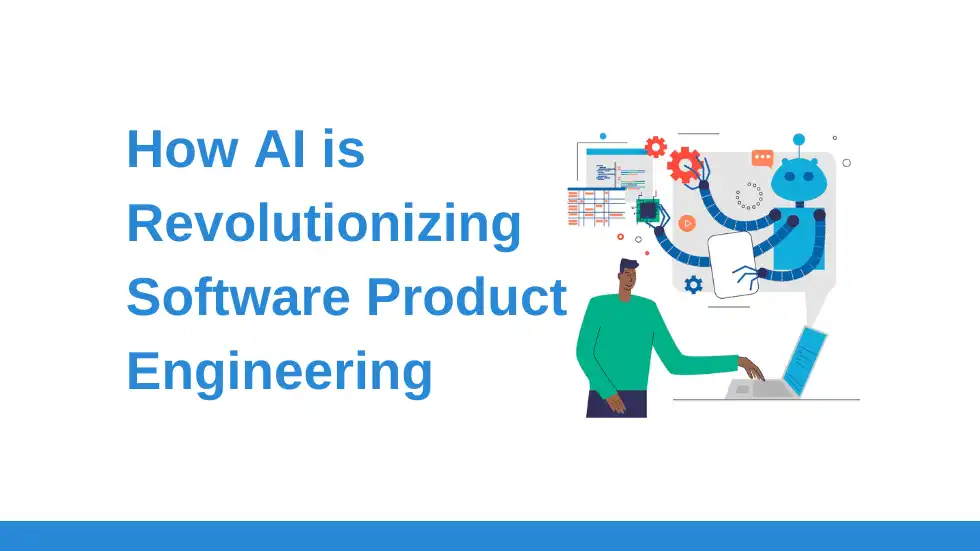Feeling overwhelmed by the ever-growing mountain of software product engineering tasks?
Struggling to meet deadlines and maintain quality while keeping your development team afloat? The traditional software development landscape might be leaving you behind. But fear not! A powerful new wave of technology is emerging to revolutionize the way we approach product engineering: Artificial Intelligence (AI).
This blog post dives into the transformative power of AI in modern software product engineering. We’ll explore how AI is automating tasks, improving quality, and accelerating development cycles, while also addressing the challenges and future considerations of this exciting technology.

Understanding AI in Software Product Engineering
AI is a broad field encompassing various technologies that are impacting software development. Here are some key areas:
- Machine Learning (ML): Algorithms learn from data to make predictions and improve their performance over time.
- Deep Learning: A subset of ML using complex artificial neural networks to process intricate data structures.
- Natural Language Processing (NLP): Enables computers to understand and process human language.

How AI in Software Product Engineering is Transforming Development
AI brings significant advantages to various aspects of software development:
- Automating Repetitive Tasks: AI in software product engineering can automate tasks like code generation, testing, and documentation, freeing up valuable developer time for strategic problem-solving.
For example, tools like GitHub Copilot leverage machine learning to suggest code snippets based on context, significantly reducing boilerplate code and development time.
- Improving Software Quality: AI-powered tools can analyze code for potential bugs, vulnerabilities, and performance issues.
Static code analysis tools use machine learning to identify code smells and potential security weaknesses, allowing developers to address them proactively.
- Personalizing the Development Experience: AI in software product engineering can recommend relevant code snippets, documentation, and learning resources based on individual developer needs and preferences.
Code completion tools powered by ML can suggest relevant code based on the current context, reducing the need for manual searches.
- Enhancing User Experience (UX): AI can personalize user interfaces, recommend features, and predict user behavior.
A/B testing tools powered by AI can identify the most effective user interface designs and personalize app features based on user data.
- Accelerating Development Cycles: Automating tasks and improving code quality through AI in software product engineering can lead to faster development cycles and quicker time to market.
Utilizing AI-powered tools throughout the development process streamlines workflows and eliminates bottlenecks, leading to faster deployments and updates.

Challenges and Considerations
While AI offers tremendous potential, there are important factors to consider:
- Ethical Concerns: Ensuring fairness, accountability, and transparency in AI-powered tools is crucial.
- Data Security and Privacy: Protecting user data used for training AI models is paramount.
- Technical Expertise: Understanding and utilizing AI in software product engineering effectively requires specific knowledge and skills.
- Integration and Adoption: Integrating AI into existing workflows requires careful planning and change management.

The Future of AI in Software Product Engineering
The potential of AI in software development is vast, and we can expect further advancements in:
- Explainable AI: Making AI models more transparent and understandable to developers and stakeholders.
- Generative AI: Utilizing AI to create entirely new software functionalities and user interfaces.
- Continuous Learning and Improvement: AI models will continuously learn and improve based on data and feedback, leading to more efficient and effective development processes.
Conclusion
AI is rapidly transforming software product engineering. By embracing this technology and addressing the associated challenges, companies can unlock new possibilities, improve software quality and efficiency, and create more innovative and user-friendly products.
As AI continues to evolve, staying informed and actively exploring its potential is crucial for remaining competitive in the ever-changing world of software development.
Additional Resources:
